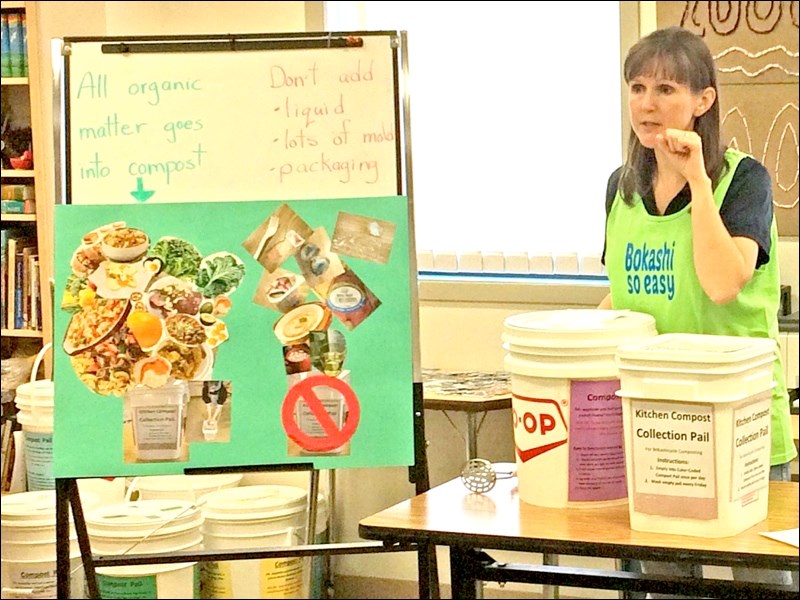Submitted
The biology 30 curriculum includes a unit about biotechnology. Hi-tech biotechnology would be topics like robotic prosthetics or the new biofeedback wristwatch products. An example of lo-tech biotechnology is Bokashi composting which has been used by Japanese farmers for centuries.
The Functional Integrated program at John Paul II Collegiate uses Bokashi composting methods to deal with food waste at the high school and at the school division Central Office. Food waste that would have gone into landfill is being turned into organic compost which is added to the school garden, school greenhouse, and the Community Garden managed by Midwest Food Resources. The project started last year and was a project in the 2016-17 Saskatchewan Environmental Council School Contest in the Waste Reduction category. The project at JP won 2nd place in the province for reducing classroom garbage by 80 per cent. This was achieved by directing all food waste into the composting cycle.
“Bokashi” is a Japanese word for fermented organic matter. The Bokashi method uses fermentation to transform food waste (and other organic matter like coffee filter papers and dryer lint) into fertilizer. The fermentation occurs in sealed containers so there is no smell and no fruit flies. Fermentation is the process used to turn a cucumber into a pickle, barley into beer, cabbage into sauerkraut, etc. Fermentation is a wonder of nature. The Bokashi fermentation process can accept all food waste including meat, bones, cheese, fruit pits, breads, confections, egg, etc. No pre-sorting of the waste is required. This makes the Bokashi method particularly well-suited for school situations.
The Grade 12 Biology students attended the presentation about the Bokashi method in the Functional Integrated classroom. They also participated in making a batch of “the mix,” the essential ingredient where the microbes needed for fermentation live.
Teacher Shelly Fransoo was amazed that this “biotechnology” is happening right under her nose at JP. The composting program is biotechnology in action.
Rhea Good, teacher in the Functional Integrated program, calculates that at least 250 gallons of Bokashi has been created and returned to the soil as organic fertilizer.
Anyone interested in Bokashi composting is welcome to contact Rhea Good at 306-481-5149. Bokashi kits are for sale at Discovery Co-op in the produce section of the Grocery Marketplace. The startup kit contains instructions to get anyone started.




